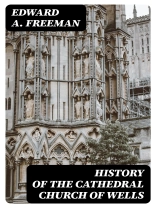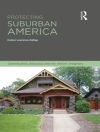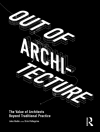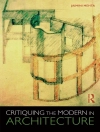Edward A. Freeman’s ‘History of the Cathedral Church of Wells’ is a detailed exploration of the architectural and historical significance of the iconic Gothic cathedral in Wells, England. Freeman’s meticulous research delves into the construction of the cathedral, tracing its evolution through various architectural styles and periods. The book is written in a scholarly yet accessible style, providing readers with a comprehensive understanding of the cathedral’s cultural and religious importance within the context of English history. Freeman’s attention to detail and appreciation for Gothic architecture make this book a valuable resource for architectural historians and enthusiasts alike. Edward A. Freeman, a renowned historian and architectural critic, was known for his groundbreaking contributions to the study of medieval history and architecture. His passion for Gothic cathedrals and meticulous research led him to produce this definitive work on the Cathedral Church of Wells. Freeman’s expertise in the field is evident throughout the book, making it a must-read for anyone interested in the history and architecture of England’s cathedrals. I highly recommend ‘History of the Cathedral Church of Wells’ to readers who are fascinated by Gothic architecture, English history, and architectural conservation. Freeman’s insightful analysis and comprehensive coverage of the cathedral’s history make this book an invaluable resource for both scholars and enthusiasts.
عن المؤلف
Edward Augustus Freeman (1823–1892) was a distinguished English historian, architectural historian, and writer, known for his analytical approach to history through institutional and architectural perspectives. Born in Harborne, Staffordshire, educated at Oxford where he developed a strong foundation in classical studies and a passion for medieval architecture, Freeman’s scholarly contribution includes an extensive range of topics from historical narratives to architectural treatises. His seminal work, ‘The History of the Norman Conquest of England’, exhibits a meticulous examination of Norman impact on English society and its institutions, a theme recurrent in his other volumes. Freeman’s ‘History of the Cathedral Church of Wells’ exemplifies his commitment to unveiling the intricate relationship between historical development and architectural evolution. He was also known for advocating the comparative method in historical research. His literary style is characterized by a didactic thoroughness, desiring to fortify historical understanding with detailed evidence and a clear framework. Freeman’s works contributed significantly to the Victorian interpretation of history, leaving a lasting imprint on the historiography of English and European middle ages. His scholarly prowess extended to his role as a contributor to the ‘Saturday Review’ and his term as Regius Professor of Modern History at Oxford, exhibiting an undying zeal for history which he earnestly sought to impart to both the public and academic realms.












